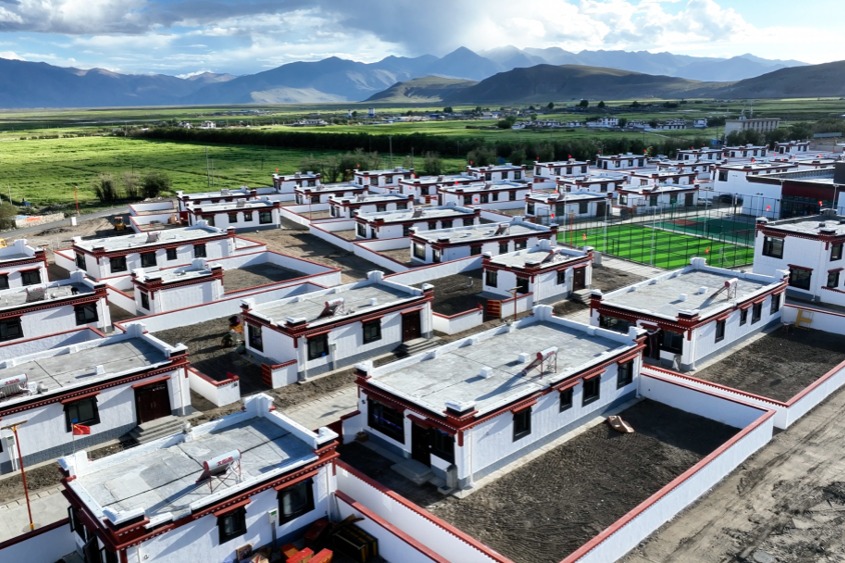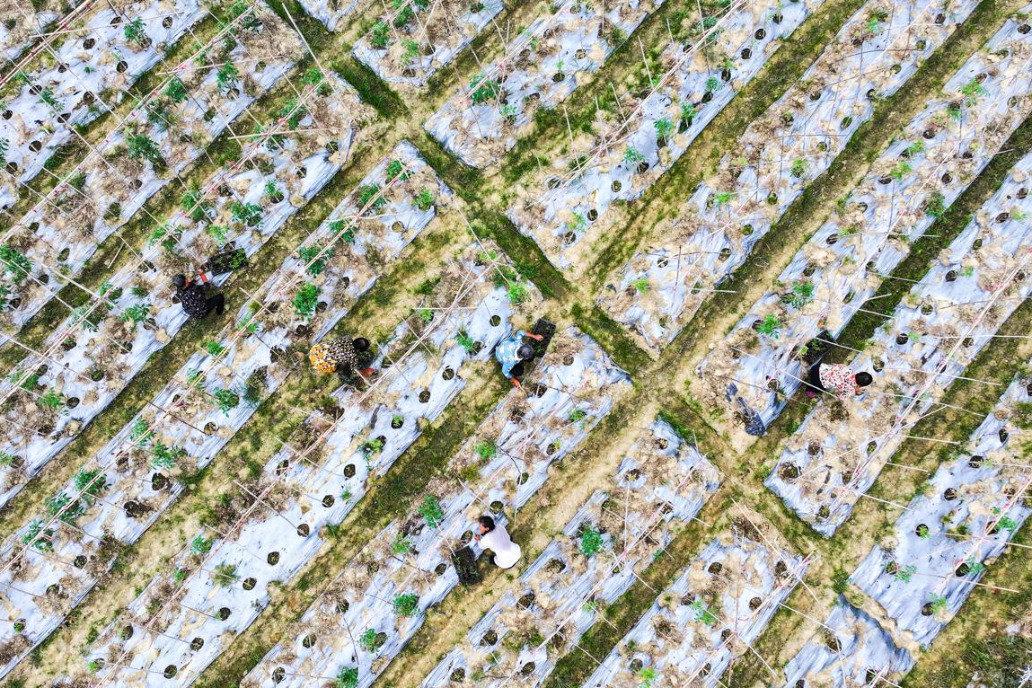Study reveals soil invertebrates boost crop yields, soil health

BEIJING -- Researchers at Sun Yat-sen University in China have recently revealed the vital role soil invertebrates play in enhancing soil fertility, texture, and crop yields, according to an announcement made by the university on Thursday.
Soil invertebrates, such as termites, ants and earthworms, are found across diverse ecosystems worldwide. By disturbing the soil, they create distinct biological structures such as termite mounds, ant nests, and earthworm casts. These creatures are often referred to as "ecosystem engineers" for their role in shaping the environment.
The researchers spent a year collecting and reviewing 1,047 relevant documents from six continents, extracting a total of 12,975 data records for meta-analysis.
They found that, on a global scale, the soil activities of termites, ants and earthworms can significantly boost the levels of key soil nutrients, such as carbon, nitrogen, phosphorus, potassium, calcium, sodium and magnesium.
Moreover, these activities can enhance several soil indicators, including soil conductivity, respiration rate, microbial biomass and plant biomass.
Chu Chengjin, who led the research team, highlighted the significant contributions of soil invertebrates to global element cycling, material degradation, and biodiversity maintenance.
"Our research indicates that protecting soil invertebrates can boost agricultural production, combat global warming, support ecological restoration, and promote sustainable development," Chu said.
The study has been published in the journal Nature.
- Helsinki spotlight for Beijing school's AI project
- Pioneering work on world's four major bay areas released
- Eight dead, four missing after Inner Mongolia flash flood
- China renews blue alert for rainstorms
- China holds 2nd rehearsal for event marking 80th anniversary of victory over Japanese aggression, fascism
- 2025 World Humanoid Robot Games push tech innovation boundaries in the arena




































